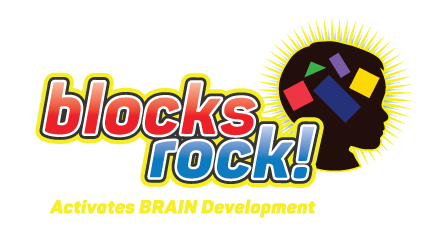News
2018 Summer STEM Education News Roundup
Read through five current articles that will excite you about the current state of STEM learning and give you a glimpse of its future!
Welcome to the summer edition of our STEM Education News Roundup! Because our game activates brain development and improves skills critical for STEM learning, the Blocks Rock team is always keeping watch for the latest STEM news.
We’ve pulled together 5 recent STEM articles that we hope inspire you to be excited about the future of STEM learning! In the middle, you’ll find a special bonus article written by Teacher to the Core on what she thinks about Blocks Rock!
Here’s how to encourage more girls to pursue science and math careers
Jilana Boston, a Ph.D. student in Cognitive Development, and Andrei Cimpian, an Associate Professor of Psychology, discuss key ways to combat stereotypes about gender and intellect and false stereotypes about STEM in order to encourage more girls to pursue science and math careers.
Standout Quote: "There are two types of beliefs that discourage girls from pursuing STEM at an early age: a) negative stereotypes about their intellectual abilities, and b) stereotypes about the people who work in STEM careers as being “nerdy” or socially awkward. As researchers who study how stereotypes and other psychological factors can dissuade girls from pursuing careers in math and science, we believe that parents and educators can help turn things around and close the gender gaps in STEM.”
Click here to read this article.
Cars Get Students 'On Track' for STEM Careers
The On Track program in Kentucky teaches students about the technology of Corvettes and other sports cars. The On Track curriculum was developed by Western Kentucky University’s SKyTeach and taught in Bowling Green and Warren County middles schools. It’s an innovative way of bringing STEM education into middle schools that you can read more about in the full article.
Standout Quote: "You don't really understand science until you understand how it works in the real world," said Rico Tyler, professional-in-residence at WKU's SKyTeach program.
Click here to read this article.
Creating a STEM Culture in Our Schools
This recent article by Brian Boyd, Associate Professor of Mathematics Education at Wright State University, and Traci Buckner, Executive Director at the Akron Children’s Museum focuses on the importance of creating a STEM culture in our schools. This culture needs to go beyond just providing educators with the tools to teach STEM curriculum.
Standout Quote: “If we fail to see beyond these siloed categories in the acronym, we will fail to realize our greater potential. STEM is a mindset; a way of thinking that demands us to tap into integral skills like collaboration, creativity and critical thinking.”
Click here to read this article.
Blocks Rock- Teacher Review STEM Game
Here’s a mention of STEM from one Teacher to the Core who recently wrote an article reviewing Blocks Rock! Her article covers what she sees as the game’s benefits, helpful tips for playing the game, images and videos of gameplay, and more.
Standout Quote: “As a child of the 80's I owe my spatial intelligence to the game Tetris and Lincoln Logs. Today's kids have such advanced games and such poor social skills that they can be hard to captivate. Rocks Block instantly engages with a real tangible toy and teaches them how to win and lose. With guidance from family and teachers this game can teach them how to win and lose with grace.”
Children with better coordination more likely to achieve at school
A recent study conducted by the University of Leeds found that young children with better eye-to-hand coordination were more likely to achieve higher scores for reading, writing and math.
Standout Quote: "The current thinking among psychologists is that the neural circuitry used to build up a child's understanding of their external environment, the way they orientate themselves spatially and understand their world is also used to process numbers and more abstract thinking. It also raises the question: should schools be identifying those children who are seen as clumsy or not so well coordinated and giving them extra support?, said Mark Mon-Williams, Professor of Cognitive Psychology.”
Click here to read this article.
Want to learn more?
Sign up for our newsletter to receive future emails that include topics like this one! Just click here and scroll to the bottom of our home page to register.


